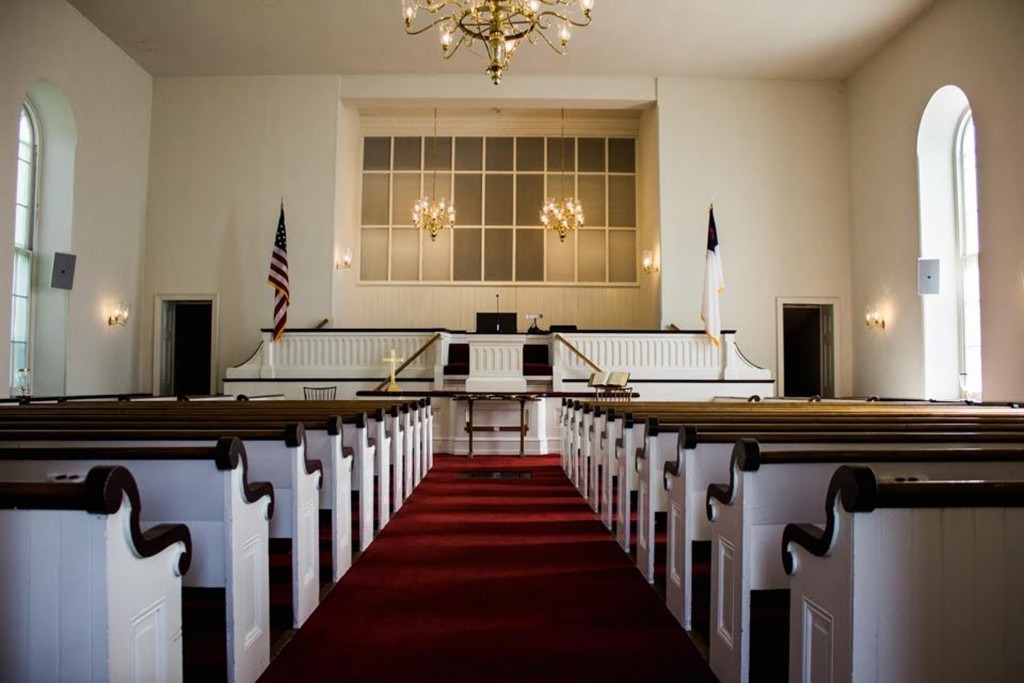A few short miles from Eastern University’s St. Davids Campus stands a monument to a bygone era when war came to America’s soil. The monument is not a statue, nor a plaque, but a small Welsh Baptist church. Built in 1805, the Baptist Church in the Great Valley’s meetinghouse is a fitting monument to the Welsh masons who built it, and to the generations of people who have served and cared for it. Standing in its quiet entryway one can imagine horses and carriages arriving with farmers from all over the countryside coming to worship in their Sunday best. However, the area around the church was not always this tranquil. During the American Revolution British soldiers plundered the church stealing anything of value, and George Washington’s army spent the harsh winter of 1777-78 at nearby Valley Forge. The minister during this period of the church’s history was the Rev. Dr. David “Davy” Jones, a man who had a fervent desire to preach the Gospel.
Jones was born in a Delaware Welsh settlement in 1736, and he grew up wanting to know more about his faith. He had the opportunity to do so when he was accepted into the Hopewell Academy in New Jersey. It was while at the academy that he met his future wife, Anne Stillwell, and after a long courtship, they were wed. Spending the rest of their lives together, they stood by each other through wars and many missionary trips. Upon becoming an ordained Baptist minister in 1761, Jones went on to minister at a small congregation in Freehold, N.J. A self-taught doctor, he was called away from this ministry in to be a missionary to the western territories where he was able to put his knowledge of both God and medicine to work. He returned to Freehold during the beginning stages of the Revolution and found himself alienated by loyalist sympathizers. He believed God was calling him to another pastorate, and he left for Chester County, Pa. where he took charge of the Baptist Church in the Great Valley. During the Revolutionary War Jones volunteered to be a chaplain with George Washington’s forces, and used his skills as a doctor to help the wounded. He was also known to preach before battles. During the Battle of Brandywine, his horse was shot out from under him while he was rallying the continental soldiers. General Anthony Wayne called Jones to also assume the position of his messenger. He accepted and often delivered messages between Wayne, Ben Franklin and George Washington. After Jones single-handedly captured a British spy, British General William Howe went as far as to put a bounty out for the capture of Jones. When the Continental Congress called for a day of prayer and fasting he preached his famous sermon, “Defensive War in a Just Cause Sinless,” on July 20, 1775. Historian Harold Twiss writes, “More than 3,000 men gathered at the church, along with members of the congregation and other spectators. Drawing upon the text of Nehemiah 4:14 calling the Jewish people to defend homes and families, Jones argued that to fight for their liberty was honorable in the sight of God.”
After the war he returned to Great Valley and continued his ministry there until 1794 when General Wayne asked him to serve alongside him again. Jones would become the second chaplain ever in the U.S. Army. After several western expeditions, he returned again to Great Valley and oversaw the building of the stone meetinghouse still used by the church to this day. Later, at the age of 75, Jones volunteered to serve as a chaplain in the War of 1812. He would follow the war to Canada, before returning home for the last time. In 1815 he was discharged from military service and spent the reminder of his years serving as the minister in the place he had come to love. Jones never stopped serving God, his country, church, family and friends. As his epithet reads when he passed away on Feb. 5, 1820, “His soul… winged its way to God and heard the glorious welcome, well done thy good and faithful servant, enter thou into this joy of your Lord.” Although long gone, Jones’ legacy continues to this day and is preserved at the Baptist Church in the Great Valley where worshippers gather every Sunday as they have for the past 305 years.
Sources: theamericanview.com, BCGV.org, “Bibles & Battle Drums,” Harold L. Twiss

